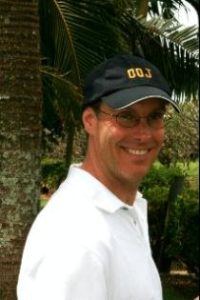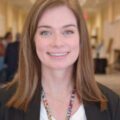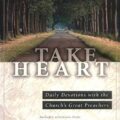 Author of The Case of the Autumn Rose
Author of The Case of the Autumn Rose
https://www.rickacker.com/
by Trisha Bleau Smith
T4JYM: Where did the idea for the book come from? Where do you generally draw your ideas for writing from?
RA: I’m the designated storyteller whenever we take long car trips, and this book started life as a mystery/adventure story told over a two day road trip from Wisconsin to Ohio.
Trips like that can be pretty boring, so I imagined a trip from Chicago to Door County, Wisconsin that was a little more exciting–a buried treasure waiting at the end of the road, a ruthless gang of thugs trying to reach it first, etc.–and told a story about it.
My ideas generally come from some specific place or thing. For instance, the idea for “The Lost Treasure of Fernando Montoya” (the second Davis Detective Mystery, due out in the spring of 2003) came when I was walking down the street in San Francisco. I saw a plaque in the sidewalk that showed the locations of buried ships throughout the city that date back to the Gold Rush. What if the key to a 150 year old mystery lay buried in one of those ships? By the time I finished my walk, I had the basic story in my head.
T4JYM: How much editing was involved? Did you do it all alone or did you send it to people to edit? How many times did you have to re-edit your works?
RA: This book, like most of what I write, went through lots of editing. First, my wife, Anette, read it and gave me her feedback. After I had gone through her changes, I gave the book to 4 or 5 test readers in the target audience. Finally, I sent it to my publisher, who had more changes.
I find that getting feedback from other people is very helpful. They regularly spot problems that I completely miss while I’m writing.
T4JYM: How many publishers did you send your book to before it was picked up? Was it rejected by any publishers? What kind of feedback did you receive from them?
RA: I actually didn’t send my manuscript to any publishers. I used a service for Christian writers called The Writer’s Edge. For a fee, they read my book submission (i.e., sample chapters, a short summary of the book, and a completed questionnaire) and published a summary of the book in their newsletter, which many Christian publishers subscribe to. One of those, Kregel Publications, contacted me and eventually bought my book.
T4JYM: Who have been your biggest influences in life? Who have been your biggest influences in your life as a writer?
RA: C.S. Lewis on both counts. I read his book “Mere Christianity” when I was in college, and it convinced me for the first time that Christianity really is true. His other theological books, such as “The Problem of Pain” and “Miracles,” helped me answer some of the tougher questions that faith presents (i.e., how can a good and all-powerful God allow people to suffer? How can a rational person believe in miracles that defy science?)
Lewis’ novels taught me a couple of important lessons about Christian fiction. First, it’s not necessary to have perfect characters who go around spouting Bible verses. Real people aren’t like that, and characters in stories should be as real as possible. Second, the best way to interest readers in the Christian message of the book is to put it in a good story.
T4JYM: How has this book been received by the general public? Has there been positive feedback? Any negative feedback?
RA: I’ve been really pleased with the feedback I’ve received so far, which has all been entusiastic. A number of people (both kids and adults) have told me that the story is very exciting and that they never knew what would happen next.
T4JYM: What are your next plans for writing? Do you plan to do any more books along the same lines as this book? Will you move on to new writing?
RA: I’ve actually got two more books in the works right now. I just finished the first round of edits from my publisher on “The Lost Treasure of Fernando Montoya,” so it should be in bookstores in a few months or so. I’m also working on “The Dead Man’s Rule,” a legal thriller for adults that’s scheduled to be released in May 2004.
T4JYM: What is generally your target audience? Do you write specifically to ministry workers or have you written other books targeted at other audiences? How do you decide on what audience to focus your writing on?
RA: The target audience for this book is children and young adults ages 8 to 14, though a number of adults have told me they read it and enjoyed it.
T4JYM: How do you find time to write? Life is busy and time management is hard to do sometimes. When do you do your best writing and where?
RA: I do virtually all my writing on a laptop computer as I sit on the train going to and from work. If it wasn’t for my long commute, I probably wouldn’t be an author.
T4JYM: What training do you have in writing? Did you take any writing courses in college to obtain the skills you have currently?
RA: I took only one writing class in college, and I don’t remember anything about it except that we met in a drafty old classroom that was very cold in winter.
My real training as a writer came through practice. I wrote for my high school paper, my college paper, my law school paper, and pretty much any paper or magazine that was willing to publish what I wrote. The more I wrote, the better I wrote.
T4JYM: What advice would you give to someone who wants to pursue a career in writing?
RA: Make writing part of your daily routine. Find one hour every day when you can sit down in a quiet place and write. When I was in high school, I would write during study hall. When I was in college, I would write in my dorm room for an hour or so after dinner. Other authors I know get up early in the morning and do their writing before the day starts.
Get good constructive criticism. This isn’t fun, but it is necessary. Find someone (or better yet, 2 or 3 people) whose opinion you trust and who is willing to read through your writing carefully. You’ll find that they spot problems that you never would have seen on your own and come up with new ideas that really improve your writing.
Look for a job that involves writing. You probably won’t be able to become a full time author right out of school, so look for a job that lets you use and improve your writing skills. Law (my career) and journalism are good choices.
Read good books. If you want to write plays, read Shakespeare and Miller; if you want to write science fiction, read Asimov and Heinlein; and so on. One of the best ways to become a better writer is to read books by great authors and pay attention to what they do.
Don’t get discouraged. Writing is a lot like sports: you probably won’t be very good when you start, but you can be great if you keep at it. You may not realize you’re improving, but you are. Try reading something you wrote a year or two ago; you’ll be amazed how much better you’ve gotten.
T4JYM: What advice would you give to someone interested in publishing their works?
RA: Find out what publishers want. Go to the editor of your school paper or arts magazine and ask them what kind of articles or stories they’d be interested in. Often they’ll have ideas that you’d like to write about or you’ll have an idea that they like. Then you can start writing with the knowledge that your work will probably get published.
Start small. Big publishers generally don’t pay attention to beginning writers, but there are plenty of other places to start. School newspapers, magazines, and poetry journals can give you great experience.





Be the first to comment